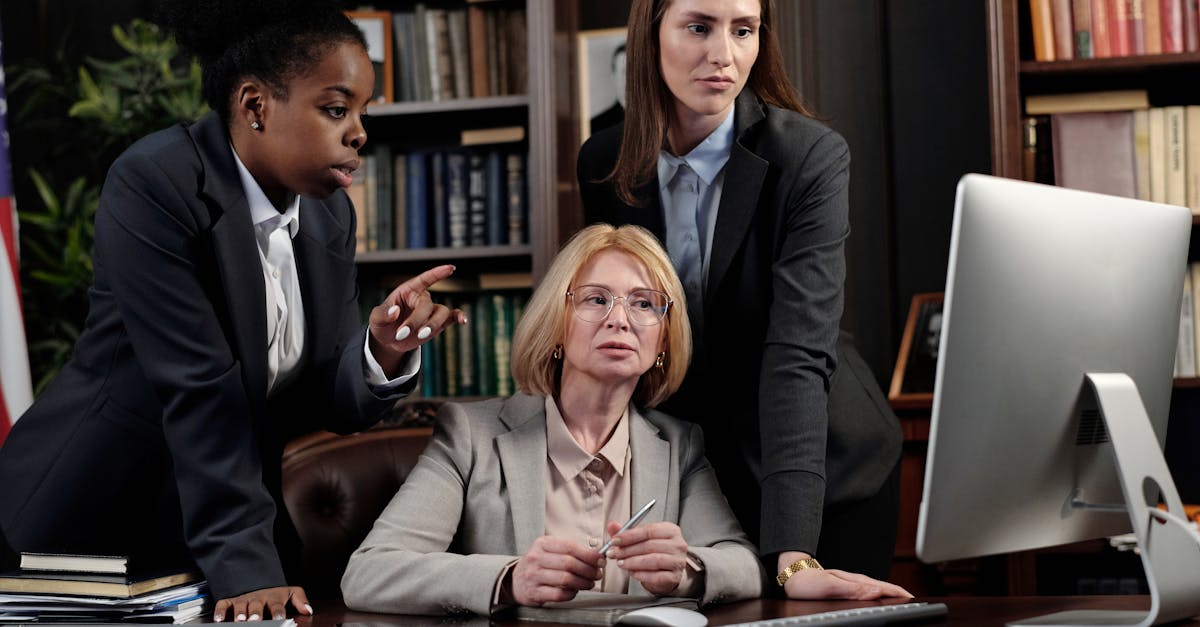
Evidence of Criminal Intent
Evidence of criminal intent is a crucial element in prosecuting a criminal case. Prosecutors must establish that the accused individual had the intention to commit the crime they are being charged with. This requires thorough examination of the circumstances surrounding the alleged offense to determine the mindset of the accused at the time of the incident. Advising on criminal law matters near me involves carefully scrutinizing the available evidence to ascertain whether there is sufficient proof of criminal intent to proceed with the charges.
In cases where proving criminal intent may be challenging, prosecutors rely on various types of evidence such as witness testimonies, physical evidence, and digital evidence. These pieces of evidence help paint a clearer picture of the accused's state of mind and their intentions at the time of the alleged crime. It is crucial for prosecutors to present compelling evidence of criminal intent to build a strong case that can withstand legal scrutiny. Advising on criminal law matters near me requires a deep understanding of how different types of evidence can be used to establish the crucial element of criminal intent in a criminal case.
Demonstration of Mens Rea
Demonstrating mens rea, or the guilty mind, is a crucial aspect that must be present before a prosecutor charges a criminal case. This element refers to the mental state or intention of the accused at the time the crime was committed. Establishing mens rea involves proving that the individual had the requisite mental state to commit the offense, whether it was intentional, reckless, or negligent. This proof is vital in determining the defendant's culpability and ensuring a fair trial based on their state of mind at the time of the alleged criminal act. Advising on criminal law matters near me requires a comprehensive understanding of mens rea and its role in the criminal justice system.
In legal proceedings, the demonstration of mens rea requires a thorough examination of the facts and circumstances surrounding the offense. Prosecutors must delve into the defendant's actions, statements, and behavior to uncover any indicators of intent or knowledge regarding the criminal act. Additionally, evidence such as prior conduct, motive, and planning may be considered to establish the mental state of the accused. By rigorously assessing the element of mens rea in a case, prosecutors can build a strong foundation for proving the defendant's culpability beyond a reasonable doubt. This meticulous approach ensures that justice is served and safeguards the integrity of the legal process. Advising on criminal law matters near me demands a meticulous analysis of mens rea and its implications in each unique case.
Assessment of Public Interest
Assessment of Public Interest
When considering whether to charge a criminal case, prosecutors must carefully weigh the public interest in pursuing the matter. This involves evaluating the impact that the case may have on society as a whole, as well as on the specific community in which the crime occurred. Advising on criminal law matters near me, entails taking into account the potential implications of prosecuting the case not only for the victims and the accused but also for public safety and the administration of justice. Prosecutors are tasked with balancing the interests of seeking justice and maintaining public order, ensuring that their decisions align with the values and expectations of the community they serve.
Consideration of Societal Impact
Consideration of societal impact is a crucial step for prosecutors before charging a criminal case. The decision to move forward with charges must take into account potential ramifications on the community at large. Prosecutors weigh factors such as the prevalence of the crime in society, the severity of the offense, and how the case's outcome could influence public confidence in the justice system. Understanding the societal impact of charging a particular case ensures that the prosecutor's decision aligns with the interests of the community. Advising on criminal law matters near me involves a deep understanding of these societal implications, which can guide prosecutors in making informed and ethical choices.
By considering societal impact, prosecutors aim to maintain the balance between upholding the law and safeguarding the well-being of the community. This assessment plays a vital role in determining whether proceeding with charges is beneficial for society as a whole. Prosecutors must evaluate the potential consequences of their actions, including how the case's outcome may affect public safety, trust in the legal system, and overall community welfare. With a comprehensive understanding of the societal impact, prosecutors can navigate complex legal decisions with the community's best interests in mind. Advising on criminal law matters near me requires a thoughtful and thorough analysis of these societal considerations to ensure that justice is served responsibly and in harmony with public needs.
Analysis of Judicial Precedents
Analysis of Judicial Precedents plays a crucial role in shaping the decision-making process of prosecutors when determining whether to charge a criminal case or not. By reviewing previous court cases and their outcomes, prosecutors can gain valuable insights into the legal interpretations and how they align with the specifics of the case at hand. This assessment helps in ensuring that the charges brought forward are consistent with established legal precedents, contributing to the fair and just application of the law. Advising on criminal law matters near me is a nuanced process that requires a deep understanding of past judicial decisions and their implications on current cases.
Moreover, examining judicial precedents allows prosecutors to evaluate how similar cases have been handled in the past and the resulting impact on society. By observing patterns and trends in legal rulings, prosecutors can make more informed decisions that consider the societal implications of charging or not charging a criminal case. This analysis serves to uphold the public trust in the justice system by demonstrating a thoughtful and thorough approach to prosecuting criminal offenses. Advising on criminal law matters near me demands a thoughtful consideration of past legal precedents to ensure that the decisions made are not only legally sound but also serve the best interests of the community.
Alignment with Legal Interpretations
Alignment with Legal Interpretations involves ensuring that the decision to charge a criminal case aligns with current legal interpretations. Prosecutors must meticulously review relevant statutes, case law, and legal principles to ascertain the appropriateness of pursuing charges. The application of the law in a consistent and fair manner is paramount, especially when considering the potential consequences for the accused. This comprehensive analysis aids prosecutors in making informed decisions that uphold the integrity of the legal system while safeguarding individual rights and liberties. Advising on criminal law matters near me requires a deep understanding of legal interpretations to navigate the complexities of charging decisions effectively.
By upholding legal interpretations and precedents in charging decisions, prosecutors can maintain the consistency and predictability of outcomes in criminal cases. Ensuring that charging decisions are in line with established legal interpretations helps build trust in the criminal justice system, both among stakeholders and the general public. This adherence to legal principles not only enhances the transparency of the charging process but also underlines the commitment to upholding justice and the rule of law. For individuals seeking guidance on criminal law matters near me, this alignment with legal interpretations is crucial in providing them with clear insights into the potential outcomes of their case.
FAQS
What is the first condition that must be present before a prosecutor charges a criminal case?
The first condition that must be present is evidence of criminal intent, which indicates that the accused had the intention to commit the crime.
Why is the demonstration of mens rea important before a prosecutor charges a criminal case?
Demonstrating mens rea, or the guilty mind, is crucial as it establishes that the accused acted with a culpable state of mind, which is necessary for a successful criminal prosecution.
How does a prosecutor assess public interest before charging a criminal case?
Before charging a criminal case, a prosecutor assesses the public interest to ensure that pursuing the case aligns with the community's concerns and priorities.
Why is consideration of societal impact important in the decision to charge a criminal case?
Considering the societal impact helps the prosecutor understand the potential consequences of charging the case on the community and ensures that the decision serves the public good.
In what way do judicial precedents influence the decision of a prosecutor to charge a criminal case?
Judicial precedents play a significant role in guiding prosecutors by providing insights into how similar cases have been handled in the past and ensuring consistency in legal interpretations.




